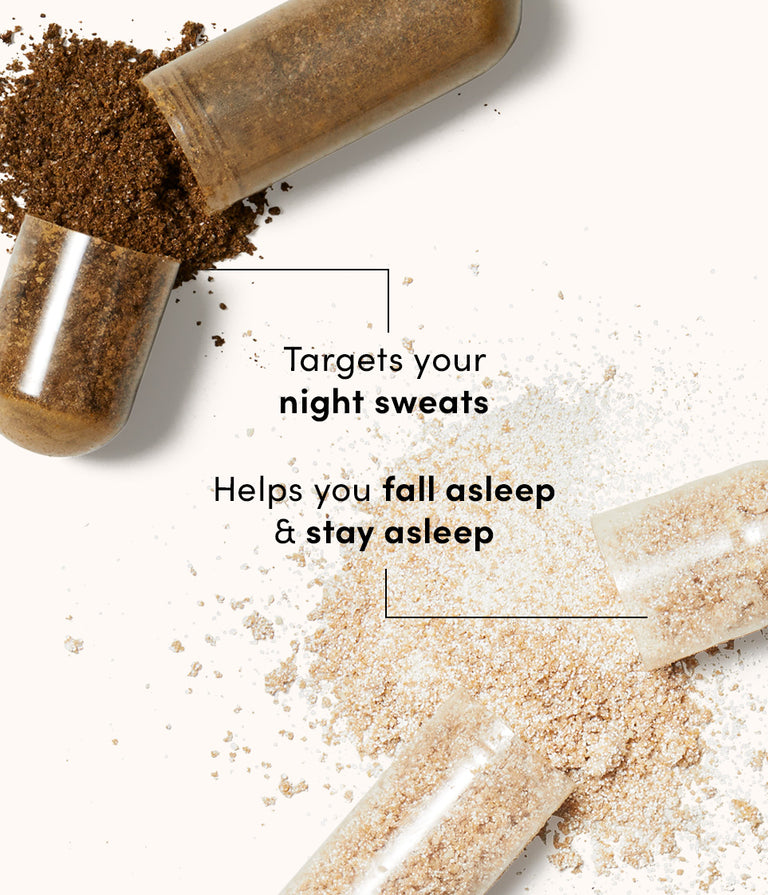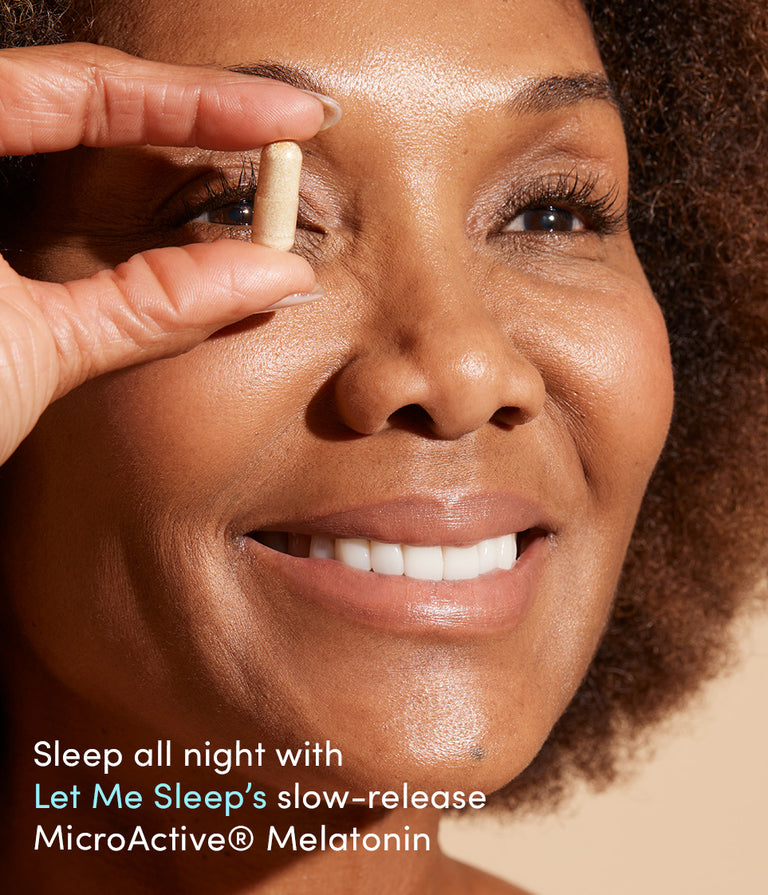By Julia Walker, RN, BSN 6-Minute Read

Women dealing with sleep issues once they reach their forties and fifties seems par for the course. Many blame stress, while others chalk it up to just getting older. But more often than not, sleep issues develop primarily because of the changing landscape of our hormones. During the perimenopause years, women can develop symptoms that interfere with sleep, including nights sweats, anxiety, and joint pain. On top of that, it’s also common to develop insomnia. And when fatigue is already a problematic feature of both perimenopause and menopause, getting little or interrupted sleep sure doesn't help.
Here, we look at why the menopause transition can affect your sleep cycle and explore different ways to help you (finally) get a better night's rest.
Why Do We Need Sleep?
Before diving into menopause, let's look at some of the main reasons we need sleep. If you think about it, sleep technically would be something that natural selection would have tossed out, as we cannot defend ourselves, feed ourselves, or reproduce ourselves while we are in dreamland. Clearly, from an evolutionary perspective and a physiological lens, we need sleep and benefit from it, too.
Getting several hours of consecutive sleep is key for optimal health. Sleep is like hitting the restart button each day. During sleep, our bodies:
-
Consolidate our memories and experiences
-
Restore and rejuvenate
-
Repair tissues
-
Grow muscle, and
-
Synthesize hormones
Your body regulates sleep, just like it does eating, drinking, and breathing. And while research has only scratched the surface as to why our bodies sleep, most sleep experts agree that it helps prevent disease and boosts our vitality.
Why Do Sleep Issues Emerge in Menopause?
The circadian rhythm is an internal clock that regulates our sleep habits. It is quite sensitive to several things, including light and hormonal changes. For example, estrogen and progesterone levels begin to change in perimenopause as your ovaries slowly begin to stop producing eggs. Estrogen specifically has a powerful impact on your brain and on neurohormones like melatonin.
Melatonin is the sleep hormone. In the journal Sleep Science, a comprehensive study revealed that melatonin levels decrease during perimenopause. Incidentally, however, men also appear to experience a decrease in melatonin with age as well. However, the severity of sleep disturbances looks more significant in women compared to men. Thus, it likely is a combination of age and changing hormones that may cause women to experience insomnia in menopause and beyond.
“Sleep should be one of your biggest priorities when it comes to managing your [menopause] symptoms.”
Managing Sleep Problems in Perimenopause & Menopause
Whether you are just starting on your perimenopause journey or have recently said goodbye to periods for good, sleep should be one of your biggest priorities when it comes to managing your symptoms. However, this is all well and good to say, but when it comes to actually getting a good night's rest, it can be an uphill battle when you want to sleep but can't.
Here are some tricks to try to get good, consistent sleep.
1. LIFESTYLE CHANGES
The best way you can help yourself get a good night's rest tonight is to make some changes to your lifestyle habits, such as diet and exercise, as well as cultivating an ideal sleep environment.
Give yourself a bedtime and stick to it. If you have children, you probably created a bedtime routine to help them calm their little bodies down. Give yourself the same TLC by taking a relaxing shower or bath, reading or journaling, perhaps meditating…and then lights out. Going to bed at the same time each night and with the same routine can help train your body and mind to be ready for rest.
Cut back on screen time. We are only just scratching the surface of how screen time and endless scrolling affect our brains. And one thing we do know is that constant screen time can wreak havoc on your circadian rhythm. So try putting your phone out of sight for two hours before sleep to help decrease stimulation. And certainly, put your phone on “do not disturb” so no texts or notifications interrupt your rest.
Decrease alcohol and caffeine intake. People often rely on caffeine to give them energy and then rely on alcohol to wind them down from a hectic day. Yet, both of these substances can have significant impacts on our sleep cycle. So consider cutting back on caffeine and alcohol if you use them frequently, especially in the hours before bedtime.
Exercise regularly. While it may seem counterintuitive, exercise has a way of increasing our energy while simultaneously helping us rest better at night. Try to fit exercise into your daily schedule at least several hours before you plan to go to bed to get the benefit of the physical activity and endorphins, along with more regulated rest.
Prepare your sleep environment. If night sweats and temperature instability interrupt your sleep, create an ideal sleeping climate. For example, you may need to turn up the fan or lower the thermostat to keep you comfortable. It may also mean you might want to try sweat-wicking pajamas or going sans PJs to keep you cool and comfortable.
2. MEDICATION
Sleep medication doesn’t have to be the last resort, as many women find it is an effective solution for their sleep difficulties. You can try over-the-counter medications, but if you find you need to take a sleep aid regularly, it is best to check with your doctor first to see what options they recommend. They likely will recommend starting with over-the-counter options, but if those don't work, they may be able to recommend a prescription medication to help you get the rest you need.
3. SLEEP SUPPLEMENTS
Melatonin - Melatonin supplements can help boost melatonin levels in your body and improve sleep, especially if taken at the right time of day. People who work night shifts or frequently experience jet lag with international travels rely on melatonin to help their circadian rhythms fall into line with their schedules.
Magnesium - As one of the most abundant minerals in our bodies, taking a magnesium supplement can have profound effects, including stabilizing your mood, bettering your digestion, and improving sleep quality and quantity. Many women take a magnesium supplement to help them fall asleep quicker and also to stay asleep longer.
Julia Walker, RN, BSN is a women’s health nurse, writer, and member of the perry team. Perry connects and supports perimenopause warriors in a safe space—to build friendships, learn, and laugh. The moment you think "WTF, could this be menopause?"—join our sisterhood!
More Menopause 101
How to Manage (& Even Prevent) Night Sweats
Perimenopause: All You Need To Know
Ingredient Spotlight: Maritime Pine Bark Extract





